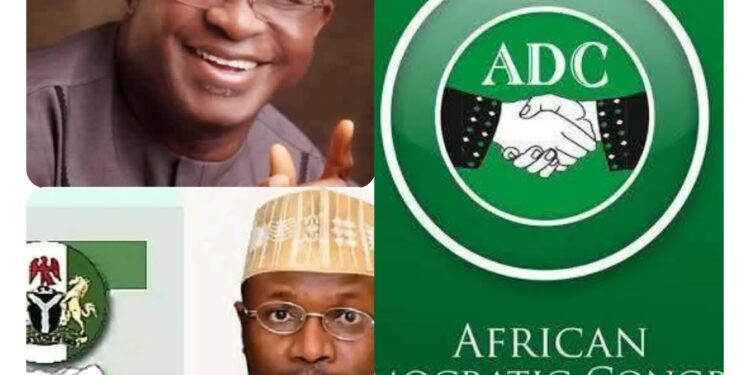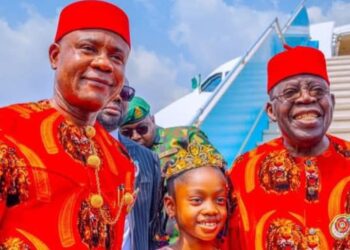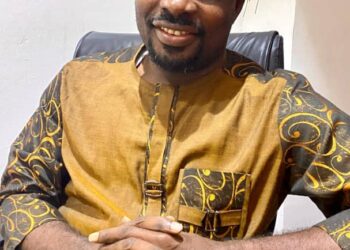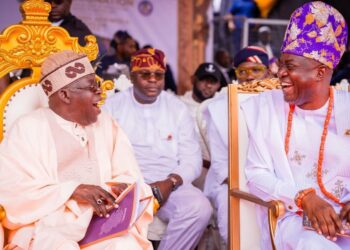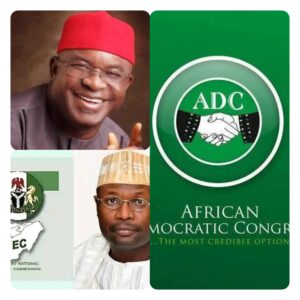
By Ibrahim Kegbegbe
ABUJA, NIGERIA – In a decisive move that may reshape Nigeria’s political landscape ahead of the 2027 general elections, the Independent National Electoral Commission (INEC) has formally recognised the leadership of the African Democratic Congress (ADC) led by former Senate President, Senator David Mark.
The announcement, made on Wednesday, September 10, 2025, ended weeks of speculation and internal wrangling within the party, which had been locked in a fierce leadership tussle between its former chairman, Chief Ralphs Okey Nwosu, and the coalition of political heavyweights that included Mark.
INEC, in an official update published on its website, listed the names of the “authentic leaders” of the ADC, confirming Senator Mark as the National Chairman. Other prominent figures named in the new executive lineup include former Osun State governor, Rauf Aregbesola, as National Secretary; Ibrahim Ahmad Mani as National Treasurer; Akibu Dalhatu as National Financial Secretary; and Professor Oserheimen Aigberaodion Osunbor, a former Edo State governor, as National Legal Adviser.
End of a Prolonged Standoff
The recognition follows weeks of delay during which INEC cited procedural lapses—including missing documents and lack of ratification by the ADC’s National Executive Committee—as reasons for withholding official recognition. At the height of the dispute, political observers feared the crisis could fracture the party beyond repair, especially with the 2027 elections drawing nearer.
Analysts now view INEC’s move as a breakthrough not only for the ADC but for Nigeria’s opposition politics. “The recognition of David Mark’s leadership signals a new phase for the ADC. With the calibre of leaders now at the helm, the party could emerge as a formidable force in 2027,” political analyst Mr. Awoeyo Olugbenga told The Merit Newspaper.
A Coalition of Political Veterans
Senator Mark, a two-term Senate President, brings decades of legislative and executive experience to the role. His coalition partners—such as Aregbesola and Osunbor—add weight to the perception that the ADC is positioning itself as a credible alternative to the ruling All Progressives Congress (APC) and the major opposition Peoples Democratic Party (PDP).
READ ALSO:Tiwa Savage Exposes Music’s Double Standards for Women
Addressing journalists in Abuja shortly after the INEC announcement, Senator Mark said the recognition was “not just a victory for the ADC but a victory for democracy.” He added: “Our goal is to build a party that speaks to the aspirations of ordinary Nigerians, a party that is not built on personal ambition but on national renewal.”
Looking Ahead
While the ADC still faces the challenge of mobilising grassroots support across Nigeria’s six geopolitical zones, its new leadership insists the party will hit the ground running. “We are not here to play second fiddle,” Senator Mark declared. “The ADC will be on the ballot in 2027, and we will be a party to beat.”
Similarly, Aregbesola expressed optimism about the ADC’s future, noting that the coalition represents “a convergence of tested leaders who are ready to rescue Nigeria from its present socio-economic difficulties.”
Implications for 2027 Elections
The recognition comes at a time when Nigerians are growing increasingly disillusioned with both the APC and PDP, creating space for a third force to galvanize disaffected voters. With Mark’s ADC now legitimised by INEC, observers say the party has a real opportunity to channel this sentiment.
INEC’s recognition also neutralises lingering doubts about the legality of ADC’s new executive, clearing the way for the party to field candidates at all levels in the forthcoming elections.
READ ALSO:Nigeria vs Nigeria: Super Eagles’ Own Goal Comedy in World Cup Qualifier
With INEC’s stamp of legitimacy, the ADC has now transformed from a party torn apart by internal crisis into one led by a coalition of some of Nigeria’s most seasoned politicians—setting the stage for a three-horse race that could redefine Nigeria’s political future.


